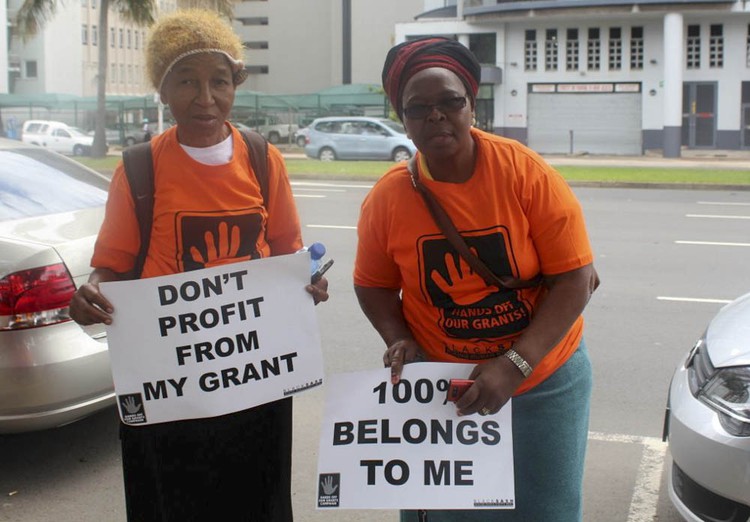Recipients blocked from getting R350 grant after fraudsters change their cell numbers
SASSA says the SRD grant has placed a massive burden on the agency and plans to implement new software to help prevent fraud
Many R350 Social Relief of Distress (SRD) grant beneficiaries are complaining of fraudsters taking their cellphone numbers, preventing them from accessing their grants. Archive photo: Nomfundo Xolo
Bonginkosi Nxumalo, an unemployed teacher from Daveyton in Benoni, has been getting the R350 Social Relief of Distress (SRD) grant each month since it was introduced during the covid lockdown in 2020.
But in January 2023, he received an SMS from the South African Social Security Agency (SASSA) alerting him that his cellphone number had been changed. After getting this message, he did not receive monthly grant payments again.
He has tried several times to report the fraud to SASSA via email. Each time he is told that his case has been escalated. It is now a year later and Nxumalo has still not been helped. He is one of many people who have complained to GroundUp in recent weeks, claiming they have been defrauded and no longer receive the R350 grant.
Nxumalo has been relying on donations from relatives and doing piece jobs to survive.
Elizabeth Raiters, who heads up the social grant help desk at #PayTheGrants, says she has received hundreds of similar complaints from people across the country.
Raiters says SASSA’s response to initial reports of unauthorised cell number changes has been to prohibit recipients from changing their numbers online. Recipients have to phone SASSA’s help desk. They are then sent an OTP to the cell number currently registered on the SASSA system, to authorise the change. But for beneficiaries such as Nxumalo who have had their cell numbers taken over by possible fraudsters, this process is futile.
Raiters says in addition to the unauthorised cell number changes, #PayTheGrants has noticed that new applicants for the R350 grant who turned 18 in 2023 had discovered their ID numbers were already in use, preventing them from accessing the grant.
SASSA spokesperson Paseka Letsatsi told GroundUp that SASSA’s fraud unit is battling with capacity constraints and a high volume of cases regarding the R350 SRD grant.
The number of SRD grant beneficiaries varies between 7.5-million and 8.5-million as recipients are subjected to monthly means tests.
Letsatsi said the SRD grant has been the “fastest growing grant in the history of social assistance in the country”, placing a massive burden on SASSA to administer it and prevent fraud.
SASSA is developing facial recognition software to strengthen the identity verification process for the grant, Letsatsi said. The software is expected to be implemented within the 2024/2025 financial year.
Letsatsi did not respond to questions about Nxumalo’s individual fraud case by the time of publication but said SASSA’s fraud department has been prioritising cases of fraud committed by government employees.
Next: Home Affairs may no longer block your ID on a whim, court rules
Previous: Taps have been dry in this Durban community for more than a decade
© 2024 GroundUp. This article is licensed under a Creative Commons Attribution-NoDerivatives 4.0 International License.
You may republish this article, so long as you credit the authors and GroundUp, and do not change the text. Please include a link back to the original article.
We put an invisible pixel in the article so that we can count traffic to republishers. All analytics tools are solely on our servers. We do not give our logs to any third party. Logs are deleted after two weeks. We do not use any IP address identifying information except to count regional traffic. We are solely interested in counting hits, not tracking users. If you republish, please do not delete the invisible pixel.



